Climate resilience
The 2015 earthquake in Nepal unravelled the economic development that had been accomplished prior to the earthquake. This is one reason why we have focused our efforts on strengthening people’s resilience towards the effects of future disasters. We are helping to develop the ability of individuals, households, and communities to foresee and prepare for a similar situation in the future. We do our best to help locals to secure their livelihoods and to rebuild infrastructure so it will not be compromised during future natural disasters.
Moreover, PIN has focused on supporting the most vulnerable communities through projects aimed at strengthening their resilience and ability to cope with unexpected external shocks. Together with our partners, we have built foot trails and foot bridges, helped reconstruct earthquake-resilient shelter and facilitated the voluntary resettlement of families at risk of landslides.
Ongoing ActivitiesORPast Activities

RAIN- Resilience, Adaptation and Inclusion in Nepal
RAIN has been designed to support and contribute to the overarching early action and climate resilience aims of BEK’s Resilience, Adaptation and Inclusion in Nepal (RAIN) programme. People in Need (PIN) led RAIN is aimed to bring significant value and sustainable scale up to RAIN programme especially in reaching the most vulnerable and marginalised communities at risk of multi hazards in Madhesh and Lumbini provinces by 2029. To achieve this, RAIN will use evidence-based approaches to tailor implementation for building resilience in a systemic way, centred around localisation, inclusion and leveraging fiscal resources to contribute to adaptation across differing contexts in the targeted provinces. RAIN’s two intermediate outcomes will focus on 1) enhancing community resilience, 2) strengthening inclusive national governmental systems in early warning (EW) & early action (EA).
RAIN plans to partner with, and empower CBOs who represent the most marginalised groups in 23 LGs across 2 provinces. Through trainings and sub-grants, they will actively co-design and participate in EWS, EA and adaptation in their localities.
Furthermore, RAIN is centred around using science, technology, innovation and evidence of best practice to inform multi-hazard early action interventions. The consortium, including technical partner, will build on its extensive experience of the RAIN sub-themes and what works and what doesn’t in Nepal, to establish and/or strengthen multi-hazard early warning systems at the sub-national level, increase access of vulnerable and marginalised groups to risk communication through forecasting, using data management for inclusive and focused EA and adaptation, and supporting coordination across all tiers of government. The consortium aims to directly target about 65000 people, and indirectly benefit about 350,000 people.
The intervention is focused in four sub themes:
- Early Warning and Early Action
- Community Resilience and Adaptation
- Inclusion and Localisation
- Shock Responsive Social Protection

Pratibaddha III: Whole of Society Approach for increased Risk Ownership, Multi-hazard Preparedness and Early Action in Hill areas of Western Nepal.
The project targets western provinces, particularly areas recently affected by earthquakes, areas predicted to experience significant impacts from future earthquakes, and regions highly susceptible to landslide risks, with a total target of 183,169 individuals. The action aims to strengthen the leadership and joint risk ownership of at-risk communities, local governments, and provincial governments in disaster mitigation, preparedness, and early action through a whole-of-society approach. Integrating Gender Equality, Diversity, and Social Inclusion (GEDSI) and environmental considerations, the action adopts a system-strengthening approach to build the capacities of provincial and local governments to lead the development of a landslide disaster preparedness and early action framework.
It has three results:
Result 1: Reduces hazard exposure
Result 2: Enhances multi-hazard early action, strengthens SRSP and disaster risk financing (DRF), and
Result 3: Acts as a crisis modifier (CM).

Alliance 2015 Urban Resilience Project
Alliance 2015 (A2015) Urban Resilience (UR) Project has been conceptualized by the consortium of People in Need (PIN), Helvetas Nepal and Welthungerhilfe Nepal keeping in mind the impact of external shocks such as the COVID-19 pandemic on ultra-poor neighbourhoods of urban areas and the inability of communities within these informal settlements to cope with such shocks. Therefore, considering the need to strengthen these communities and build their resilience to such shocks, the UR project will focus on sustainable interventions to build Urban Resilience through increase income and employment generation opportunities.
In partnership with Federation of Woman Entrepreneurs Associations of Nepal (FWEAN), the project is being implemented in Kathmandu Metropolitan City (KMC) and Godawari Municipality through interventions in sustainable livelihoods, access to finance and access to social protection mechanisms and services that are consistent with the Market System Development (MSD) Approach. The project has three output which were:
- Improved Income Generation through Skills Development and Capacity Building
- Improved linkage to Social Protection Schemes through Local Champions
- Improving access to Financial Services
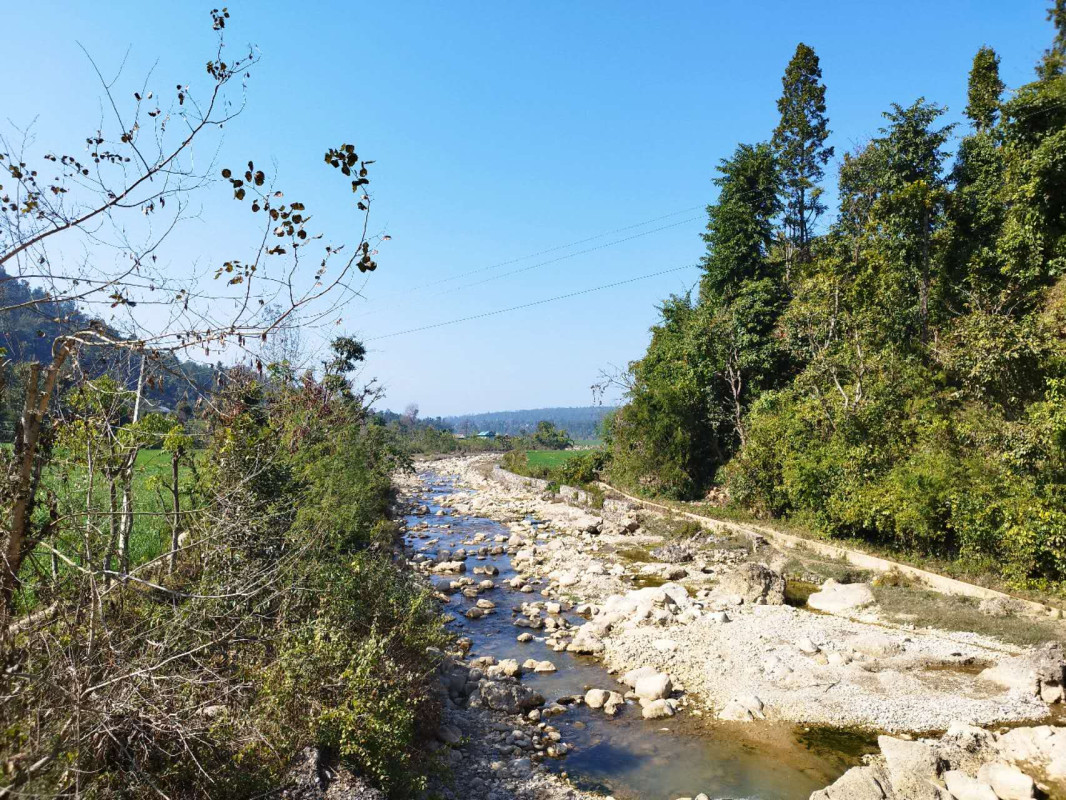
Community Climate Resilience Toy Model (CCRTM)
The CCRTM focuses on creating a user-friendly tool and a stakeholder platform to produce a low-cost, replicable product. It has been piloted in Gurbhakot Municipality, Surkhet, Karnali Province, focusing on the Goche River watershed. The model helps local governments identify natural disasters and climate change impacts, informing adaptation policies and plans.
This initiative aligns with PIN's global efforts in climate resilience, which include climate reports and advanced analyses of climatic and agricultural patterns in countries like Syria, Iraq, Angola, and Ethiopia. These reports use big data and remote sensing to assist local institutions and farmers in understanding climate trends and making informed agricultural decisions.

Durable Solutions III: Facilitating the Durable Solutions for Landless Households at Risk of or Displaced by Floods in Madhesh Pradesh
The project aims to systematicallyincludelandless households at risk of floods to access governmental grants before, during, and after the floods through facilitation of durable solutions for their increased resilience.
The project focuses on five major output:
- Technical Support to municipality
- Facilitating integration of DRR and Land Agendas
- Supporting access of landless communities to services
- Advocacy across all three tiers of the government
- Practical inclusion of landless into Anticipatory Action, Shock Responsive Social Protection, and Climate Change Adaptation

Pratibadhha II: Together for Disaster Preparedness and Early Action in landslide affected hilly regions of Nepal
At first, the project entails engaging municipality representatives, communities at risk, and key stakeholders across three tiers of the government to commit and work together. This includes supporting the local government in decision making through categorization of settlements as per the guidelines set by the Government of Nepal into CAT II in need of mitigation, and CAT III in need of relocation. Alongside, the project will implement nature-based solutions for landslide mitigation, raising awareness, and advocating for better preparedness for landslides.
Secondly, the project focuses on localizing forecasting, and developing early action protocols to strengthen the capacity of local government and at-risk communities for early action. The activities will facilitate knowledge exchange among experts and practitioners on landslide forecasting and early warning system.
Additionally, Pratibaddha II will contribute to broader topics that are fundamental for the Government of Nepal to be better prepared in case of future humanitarian crisis in hill areas of Nepal. It seeks to advocate for effective early action by leveraging the governmental Social Protection programs. The project will collate knowledge, understanding and evidences for Shock Responsive Social Protection.Through all these activities, the project will demonstrate different opportunities for risk reduction and preparedness for response in Nepal’s hilly areas.

Pratibaddha (Risk-Informed Landslide Management of Nepal's Hill Areas)
First, engaging local authorities and disaster management bodies in a series of capacity-building programs using innovative hazard and risk-mapping tools, as well as through awareness-raising campaigns and workshops for local user committees, private contractors, engineers, and relevant stakeholders to enhance their knowledge of hazards, risks, and human disturbance.
Second, the action will design and deliver innovative participatory programs for at-risk communities using custom-built 3D topographic maps and landslide models to increase understanding of physical hazards and practical ways to incorporate risk-informed planning such as through improved land use and mitigation measures at local level planning.
Third, the action will seek to raise awareness of and advocate for effective landslide management at the national level through facilitating exposure visits to “champion” municipalities to encourage cooperation and information sharing between local and national authorities. Additionally, thematic events around innovations and best practices in landslide management will be organized at the national level focusing on local experiences, challenges, and opportunities.
Through these results, the action will seek to establish an innovative model for landslide management that can be replicable, affordable, and scalable into other parts of Nepal.

Hamro Ghar
People in Need and its consortium partners propose to implement a community-driven reconstruction program that will address and mitigate those barriers to reconstruction by offering tailored socio-technical assistance according to the specific barriers experienced at a household and community level. The assistance will vary from access to technical consultations by the engineer, builder trainers, and on-the-job trainings, to provision of skilled masons and carpenters, construction tools or material and transportation cost subsidization in remote areas and facilitation of exchange of labor through community reconstruction groups. The target locations will be selected based on the reconstruction progress and the vulnerability of the population, prioritizing the vulnerable households as per the Nepal Reconstruction Authority guidelines.
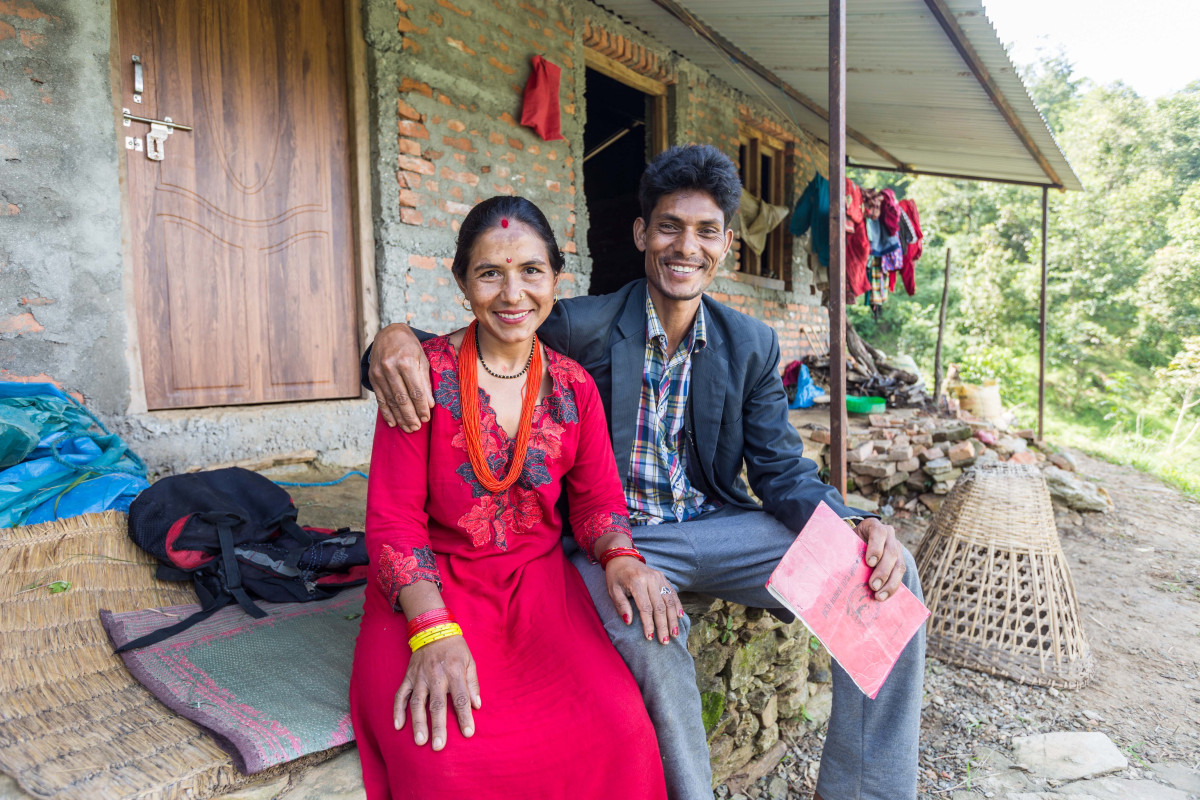
Durable Solutions
The consortium will ensure that affected people are adequately informed about the relevant policies, households have the documents needed to access government designed solutions, and are supported to enroll in relocation programs and to apply for the Rural Housing Reconstruction Grant. This work will be managed through a secure data management system. Moreover, we will focus on building the resilience of displaced and relocated households to make sure they have a reasonable life-chance following their relocation. This shall be done through Her Safety training, which focuses on empowering women and girls to address their protection needs through the formation of (mostly female) groups called Safety Committees and through tailored training on sexual and reproductive health, gender and sexual violence, safe foreign employment, financial management, and emotional wellbeing and conditional cash grants to those groups.
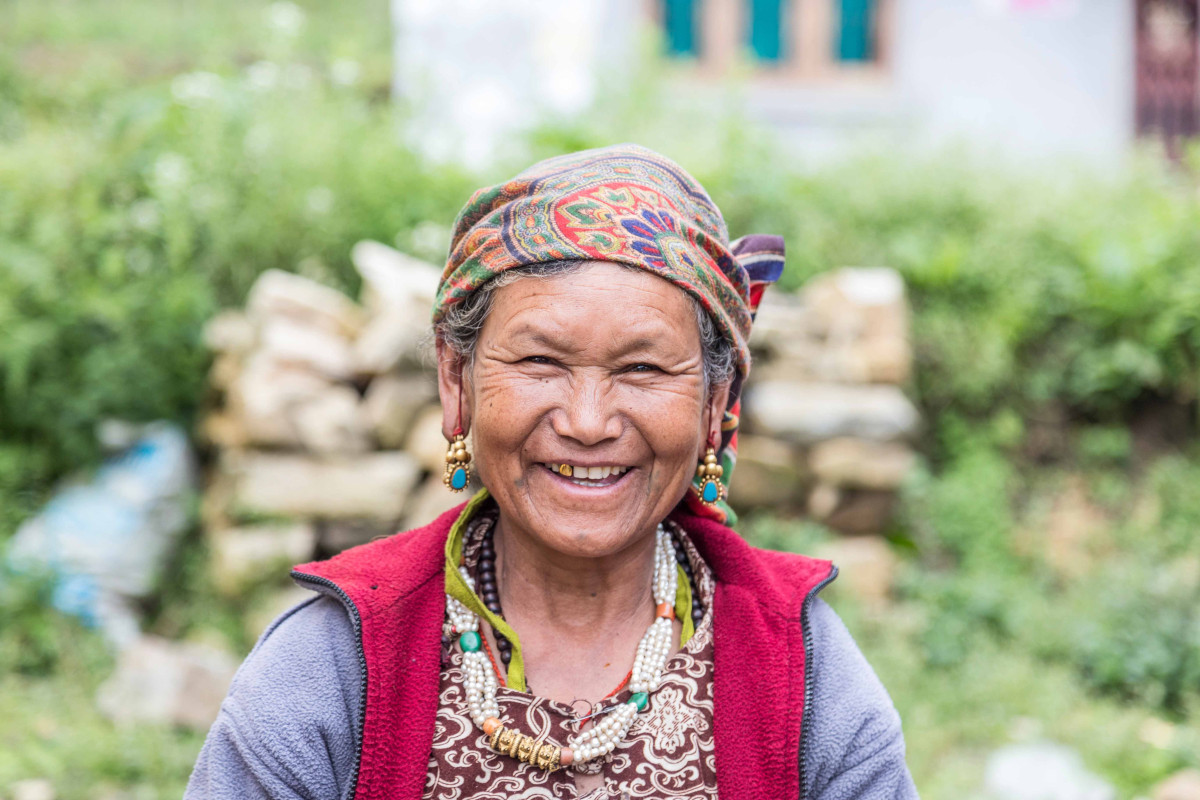
Support of Returnees and Displaced Households
The project benefitted 1,500 individuals, who were employed through cash for work programming, supported by technical training and micro cash grants/in-kind for livelihood recovery, or received winterization support. In particular, women were direct beneficiaries. Aid recipients for livelihood recovery support (cash grants) were the most vulnerable households, especially from IDP camps and returnees.
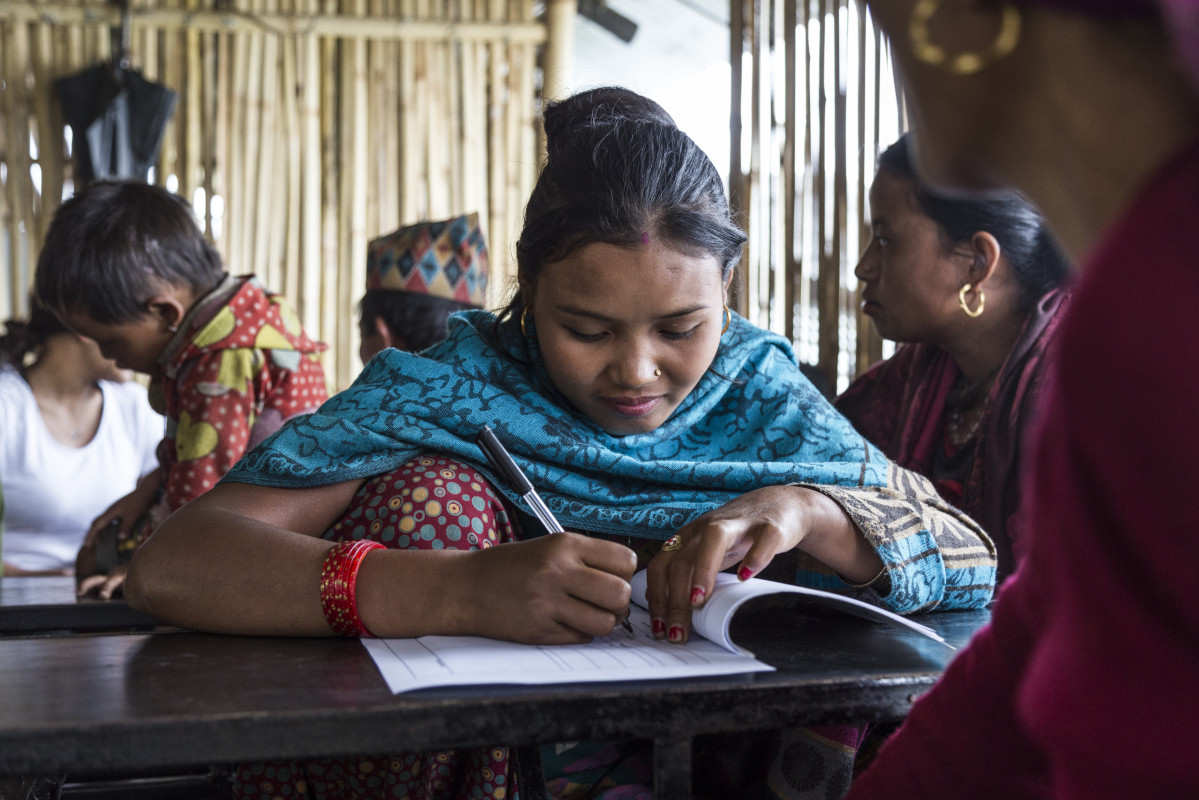
Supporting Durable Solutions
PIN’s protection team conducted training on sexual and reproductive health, gender and sexual violence, safe foreign employment, financial management and emotional wellbeing. As part of the trainings, the Committee mapped out risks in their communities, looking especially at safety risks for women and girls. Once they identified these risks, the Committees were given small cash grants to implement their own solutions.

Unnat Goreto: Resilient Trails for Resilient Futures
The project reconstructed over 125 km of trails, 9 footbridges, and 15 rest areas and at least 800 meters of handrails along with the hazardous areas in remote Himalayan villages by employing over 2,000 residents from the communities. Over 1 million GBP has been dispersed in the local communities through employment. The project provided local residents with temporary jobs, helped revitalize their local economies, and improved access to the entire region. Local people were able to invest in the reconstruction of their houses, livelihood, and their children’s education.
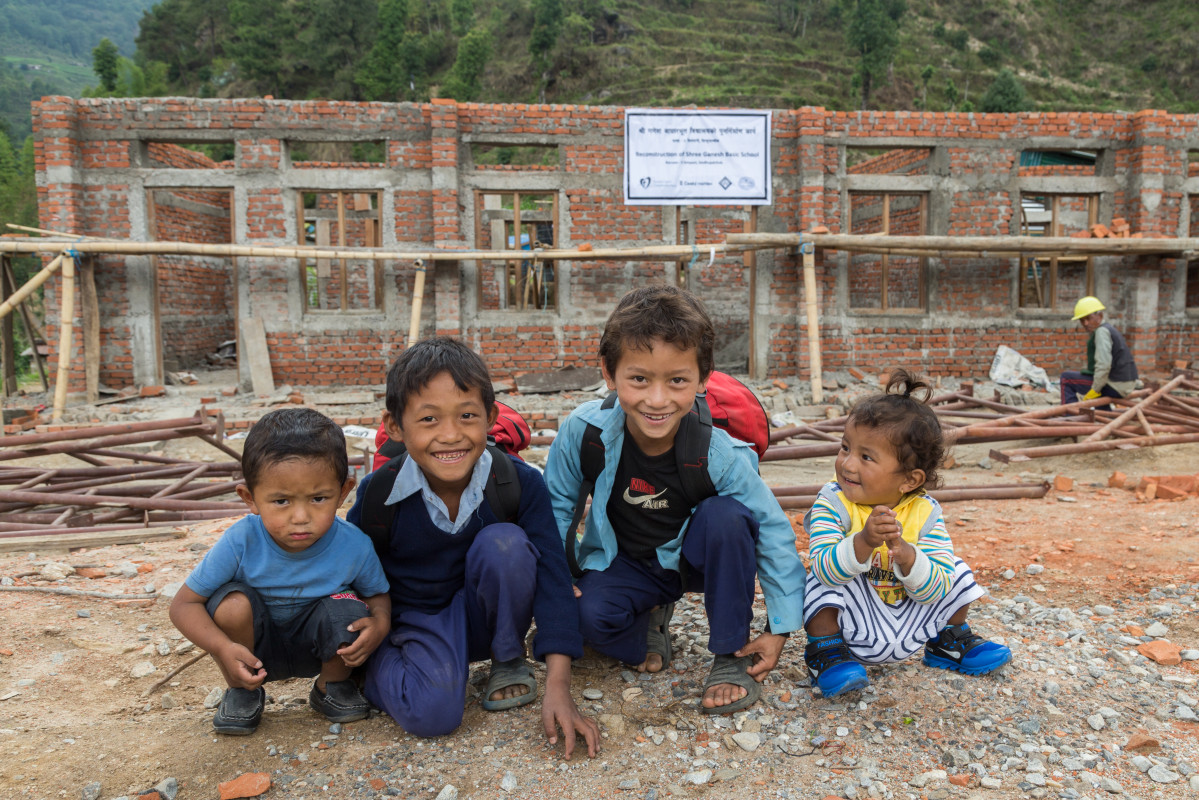
Czech Radio Relief and Reconstruction Program
Thanks to the financial support of the Czech Radio Foundation, a new school is being built in Baruwa village. All the five schools of this village were destroyed in the earthquake and are merely running under temporary learning centers (TLC). That worsened access to quality education for kids from the community and most of them attend other schools, which are difficult to access. Ganesh Basic School will help bridge this gap. Local people have been mobilized to participate in the construction of the building. Besides an earthquake resistant school building, adequate classroom furniture will be provided: desks, benches, black/white boards, office furniture and chairs.
For this reason, PIN works directly with local governments and community groups to carry out reconstruction works, providing them with the necessary training and technical support whenever necessary. Moreover PIN provides communities by trainings in DRR (Disaster Risk Reduction) and gives technical consultancy to help reduce disaster risks through systematic efforts. PIN aims to see various livelihoods, such as farming, livestock rearing, carpet production, and blacksmiths restored to functionality through the replacement of vital assets, such as tools and machines, and the provision of additional trainings whenever required.
